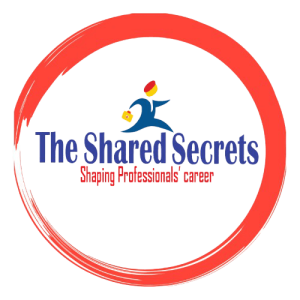What Do Recruiters Look for in a Resume? Job-seekers often think about how they can stand out from the crowd. Having amazing qualifications, personality traits, professional skills and impressive experience are certainly desirable qualities for a job candidate. But to stand tall, job-seekers often need to show more than just the required skills, qualifications and experience to get hired.
So, what do recruiters look for in a resume? A resume is one of the most important documents in the job-hunting process for any candidate.
A resume is a marketing document that empower you to communicate your professional value and trigger an interview opportunity.
The CV must be crafted very smartly because hiring managers give only a few seconds to each application for initial screening. All the important information required for the role must be available just at a glance for the recruiters.
Relevant Article: What Does a Professional Resume Should Have to Trigger the Interview Call?
CV is the document that is going to make a first impression in the interview. Candidates get only one chance to make a good impression. CV is the document that is going to make a first impression in the interview. Candidates get only one chance to make a good impression. Remember, if you are sitting in front of the interviewer that is only because of your CV or resume. So, be honest while writing your CV because most part of your interview is going to happen from your CV. Your responses, body language, and confidence level must be aligned with the CV contents.
Relevant Article: HOW TO IMPRESS THE INTERVIEWER?
CV or resume can contain a lot of information. But, what do recruiters look for in a resume, is a big question? Your resume can have educational detail, work history, and professional skills but you should make sure your resume must address the following key important areas and points as well. You must consider these points while crafting a professional resume.
Results, Achievements, or Key-Value Addition:
The Interviewer love to see the achievements. Include the results and key-value addition you brought in your current and past roles. You should include the targets and goals you achieved, and brought some improvements in policies and procedures, built a new team, developed SOPs, and won performance awards. You should include the increased revenue, target percentages, the percentage of the cost you saved.
Your Current Roles and Responsibilities:
You should update your CV with the right roles and responsibilities required for the role before going for an interview. It’s very important your recent roles and responsibilities must be aligned with the opportunity for which you are going to be interviewed. Tailor each job application before sending according to the potential role requirements.
Required Professional Qualification for the Job:
Your CV must have your education or qualification section. You should also mention the certification you have taken, training programs, and skills development workshops you have attended.
Relevant Past Work Experiences:
Mention your past work experiences with roles and responsibilities in reverse chronological order. Ensure your experiences are relevant and consistent with the role you are applying for. Address the gaps in experience (if any) properly. Mention your contribution, achievements, facts, figures, special assignments, and projects as well.
Professional and Interpersonal Skills Required for the Job:
Include the right set of interpersonal and professional skills in your CV you have developed over the passage of time. All of Your skills should complement your current and past experience and eventually, your skills should demonstrate your suitability for the job on the table. Emphasize on job-related professional competencies instead of placing more focus on personality traits.
Required System & IT Skills to Do the Work:
Every job needs some technical and IT skills to perform the work properly. Write the technical or IT skills you have or have developed over a period of time. Align these skills with your past experience, current roles, and responsibilities and with the opportunity you have right now.
Layout and Readability of the CV:
Make sure your CV is written in the right font, colour, format, and language. Avoid grammar, spelling mistakes and navigate the information sensibly. Choose an Applicant Tracking System friendly professional layout and use the bullet points for key skills, achievements, job responsibilities etc. instead of writing in a long paragraph. The first page is very important and must be crafted very carefully and must contain the necessary detail at a glance.

